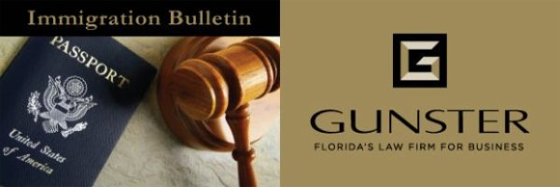
Since May 26th, when the U.S. Supreme Court decided Chamber of Commerce of the United States of America v. Whiting, the Press has been full of articles alerting U.S. employers to the Decision, which upholds Arizona’s law establishing licensing sanctions for employers in Arizona that knowingly or intentionally hire illegal workers and requires Arizona employers to participate in the federal government’s E-Verify program before hiring new employees. The Supreme Court found that the Legal Arizona Workers Act of 2007 was not preempted or superseded, by federal immigration laws. The Supreme Court also rejected the argument that E-Verify, the Government’s Internet-based system that compares information from an employee’s Form I-9, Employment Eligibility Verification, to data from U.S Department of Homeland Security and Social Security Administration records to confirm employment eligibility, was preempted by federal law finding that, even though Congress made the E-Verify program voluntary at the national level, it did not intend to prevent states from requiring participation. Although it was argued that imposing sanctions on businesses would promote discrimination in the hiring process, the Court noted that the “business death penalty” of license termination did not apply to situations simply involving the hiring of unauthorized employees but rather was triggered only by egregious violations.
A number of states have either enacted or are considering immigration-related legislation with potential impacts on employers. As a result of the Whiting decision, it seems likely that states will be encouraged to pursue such legislation or other actions in the immigration area. For example, in advance of the recently concluded Florida legislative session that considered but failed to pass immigration-related legislation, the Governor had issued an Executive Order requiring that state agencies include a provision in their contracts mandating that contractors use E-Verify to validate the employment eligibility of their employees. The state agencies’ implementation of this Executive Order has raised several issues including the ability of a contractor to comply with both the Executive Order and the federal E-Verify program.
With both the federal government and certain states now joined at the enforcement hip focusing on employers as part of the solution to illegal immigration, employers would be well advised to review their existing employment eligibility verification practices and procedures as well as other aspects of their employment eligibility compliance programs to ensure that they reflect the level of good faith effort expected by the governmental authorities and thereby provide the employer with a potential rebuttable affirmative defense to any violations. Employers would be well served to consult with their immigration counsel in this regard.
For more information, please click on the following link:
http://www.supremecourt.gov/opinions/10pdf/09-115.pdf
|
This publication is for general information only. It is not legal advice, and legal counsel should be contacted before any action is taken which might be influenced by this publication. Established in 1925, Gunster Yoakley is one of Florida’s oldest and largest full-service law firms. Its substantial and diversified practice serves an extensive client base of international, national and local businesses, institutions, local governments and prominent individuals. The firm maintains a strong presence in Florida with offices in Fort Lauderdale, Miami, Palm Beach, Stuart, Vero Beach, West Palm Beach, Jacksonville, and Tallahassee. Gunster Yoakley is home to more than 137 attorneys and 329 employees, providing counsel to clients through 10 practice groups including corporate, immigration, employment, technology and emerging companies, tax, banking and financial services, real estate, land use and environmental, business litigation, and private wealth services. |
